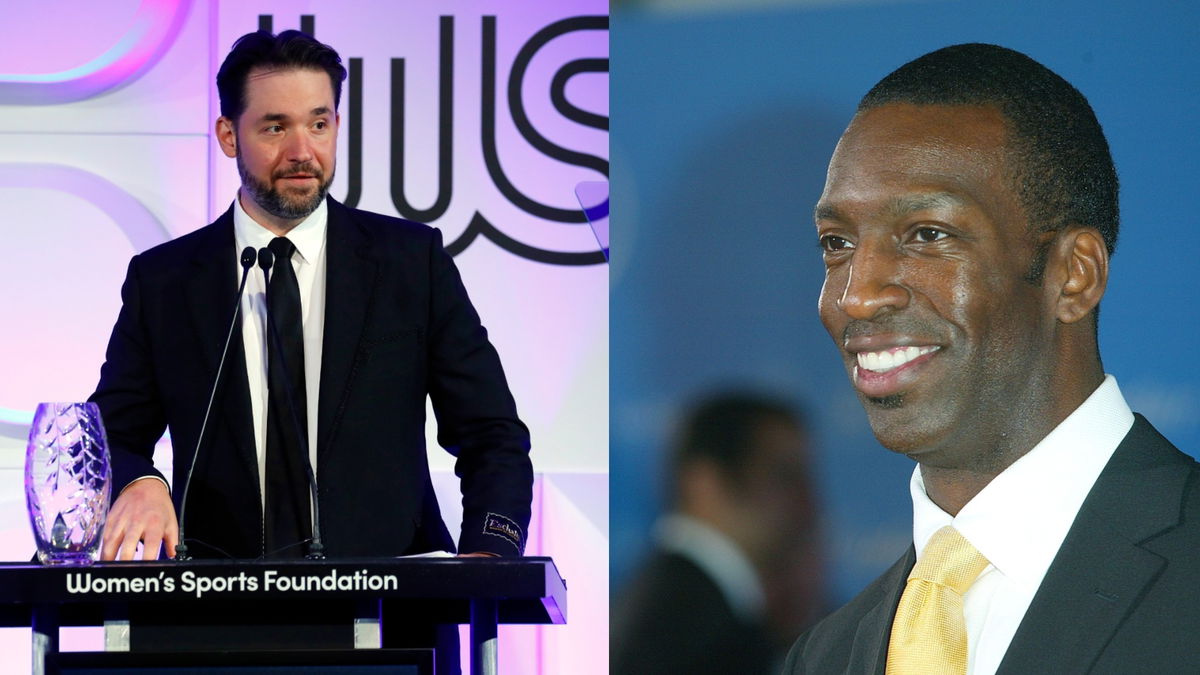
Getty
Image Credits: Getty

Getty
Image Credits: Getty
The track and field world is witnessing an unprecedented surge in competition among emerging leagues, with new leagues popping up and battling it out to change the game. Two major players in this exciting arena are Athlos, founded by Reddit co-founder Alexis Ohanian, and legendary sprinter Michael Johnson’s Grand Slam Track. They’re both trying out new, innovative ideas. But recently, some things have happened that put GST in a tough spot and really heated up this rivalry. So, how did we get here?
Watch What’s Trending Now!
The trouble for GST really blew up when its final event in Los Angeles was suddenly canceled. The reason given? It just wasn’t financially viable. This news, reported by The Independent on June 13, 2025, highlighted the money problems GST was facing. While new investors are expected to come on board, the Los Angeles event is permanently off the calendar. This setback not only made people question if GST could even survive but also put its business model under a microscope, especially when compared to competitors like Athlos. What does all this mean for the future of track and field leagues, and how will they operate?
ADVERTISEMENT
Right into this heated situation stepped Alexis Ohanian, who’s not just Serena Williams’ husband but also the brain behind Athlos. He posted something on X that many people saw as a subtle jab at Michael Johnson. On June 19, 2025, Ohanian tweeted about athlete Tara Davis-Woodhall, saying, “She’s not just an ATHLOS athlete but also an OWNER. We’re built different.” This statement, which referenced an earlier Athlos post about Davis-Woodhall leading the way in women’s sports, really emphasized a key difference: Athlos’s athlete-ownership model. Unlike GST, which doesn’t offer athletes a stake in the company, Athlos provides athletes with ownership stakes. Ohanian clearly believes this strategy sets them apart. But is this just smart business talk or a deeper critique of how Grand Slam Track is doing things?
She’s not just an ATHLOS athlete, but also an OWNER. We’re built different. https://t.co/xwDqdq9ZeB
— Alexis Ohanian 🗽 (@alexisohanian) June 19, 2025
ADVERTISEMENT
Ohanian’s words, “We’re built different,” really resonate, especially for sports fans who love a good underdog story or a tale of innovation versus tradition. The athlete-ownership model aims to revolutionize women’s track. That’s a stark contrast to GST’s recent financial woes. So, this tweet isn’t just a pat on the back for Davis-Woodhall; it’s a pointed reminder of Athlos’s core vision. How will this growing rivalry between these two influential leagues ultimately shape the future of track and field? Meanwhile, Athlos has stepped up its athlete-ownership relationship.
ADVERTISEMENT
As Michael Johnson’s GST stumbles, Ohanian’s Athlos elevates champions: Richardson, Thomas, and Davis-Woodhall join as stakeholders
The track and field world has been buzzing lately, and it’s all thanks to Athlos, the brainchild of Reddit co-founder Alexis Ohanian. They have dropped a bombshell announcement: Olympic champions Sha’Carri Richardson, Gabby Thomas, and Tara Davis-Woodhall are joining as stake owners. This news, hot off the presses from a Forbes article on May 30, 2025, is a huge moment for the league, which is set to kick off in 2026 with a fresh, team-based format.
Well, these incredible athletes, already household names, won’t just be competing; they’ll be shaping Athlos’s future as investor-owners. But what does this groundbreaking move mean for how the sport evolves?
ADVERTISEMENT
Ohanian’s vision, as Forbes captured it, is all about empowerment: “Gabby, Sha’Carri, and Tara represent a new generation of athletes who have put this sport on their shoulders and deserve to be compensated for being the standard-bearers.”
This isn’t your typical league model. Athlos is shaking things up by promising to send 10% of its revenues right back to the athletes—a strategy they first unveiled in a PR Newswire announcement back on August 21, 2024. For fans, this isn’t just about who wins medals anymore; it’s about the athletes themselves having a real say and a piece of the pie. How will this unique approach influence the entire competitive landscape of track and field?
ADVERTISEMENT
ADVERTISEMENT
ADVERTISEMENT
ADVERTISEMENT